--The majority of U.S. states have recently started to fully or partially reopen their economies without seeing a significant downward trend in COVID-19 infections.
--"Reopening may lead to sharp increase in new cases and local outbreaks, which may cause significant rise of nationwide COVID-19 cases and deaths."
--Despite the Trump administration's strong push to get the U.S. economy going again, the American public is still divided over state efforts to ease social distancing restrictions and restart the economy.
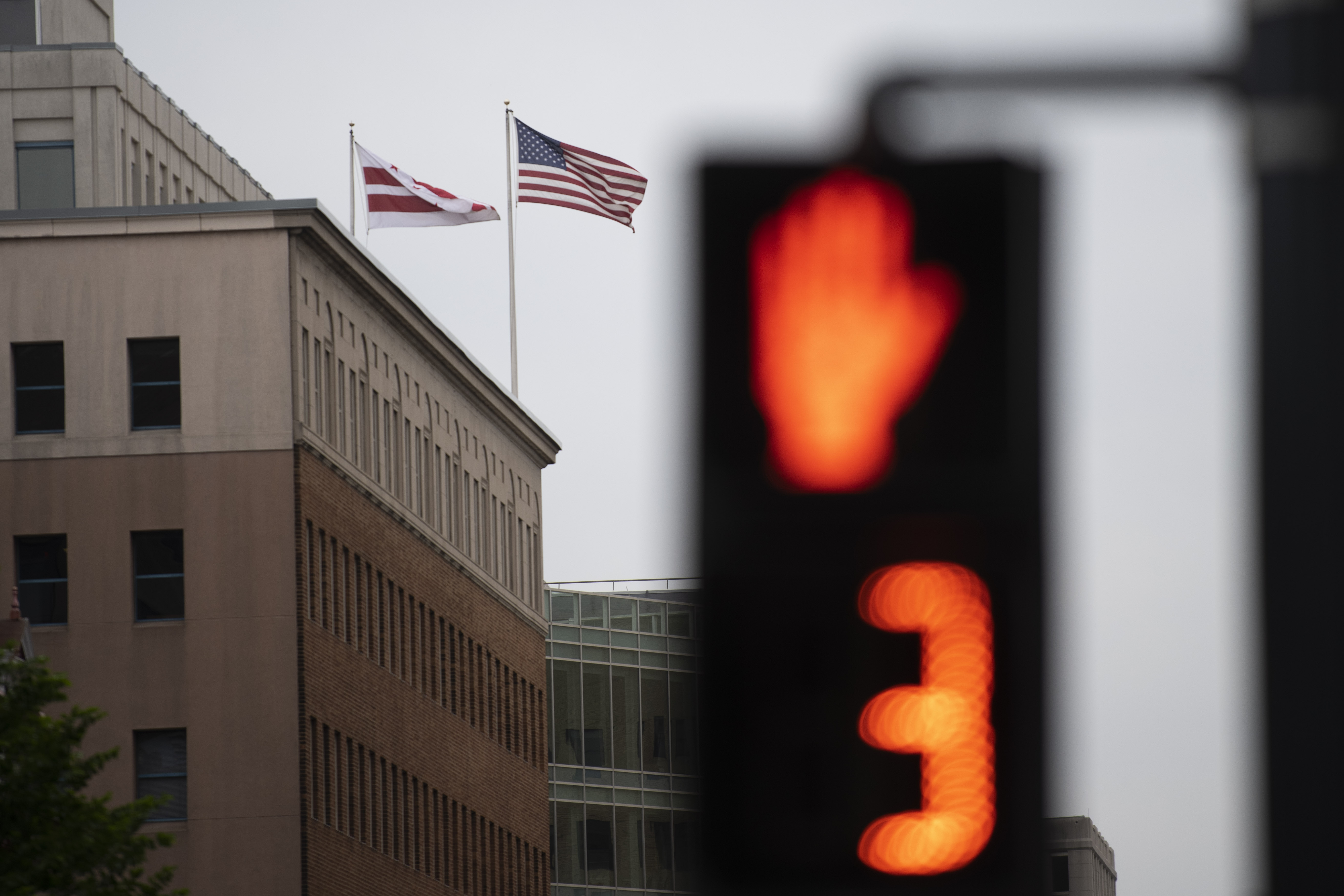
Photo taken on May 19, 2020 shows a U.S. national flag and traffic lights in Washington D.C., the United States. (Xinhua/Liu Jie)
WASHINGTON, May 20 (Xinhua) -- The majority of U.S. states have recently started to fully or partially reopen their economies without seeing a significant downward trend in COVID-19 infections.
Many governors, with the support of the U.S. administration, have been scrambling to rescue the devastated economy, but public health experts, economists, as well as businesses have expressed their grave concern that a hasty reopening could trigger a second wave of infections.
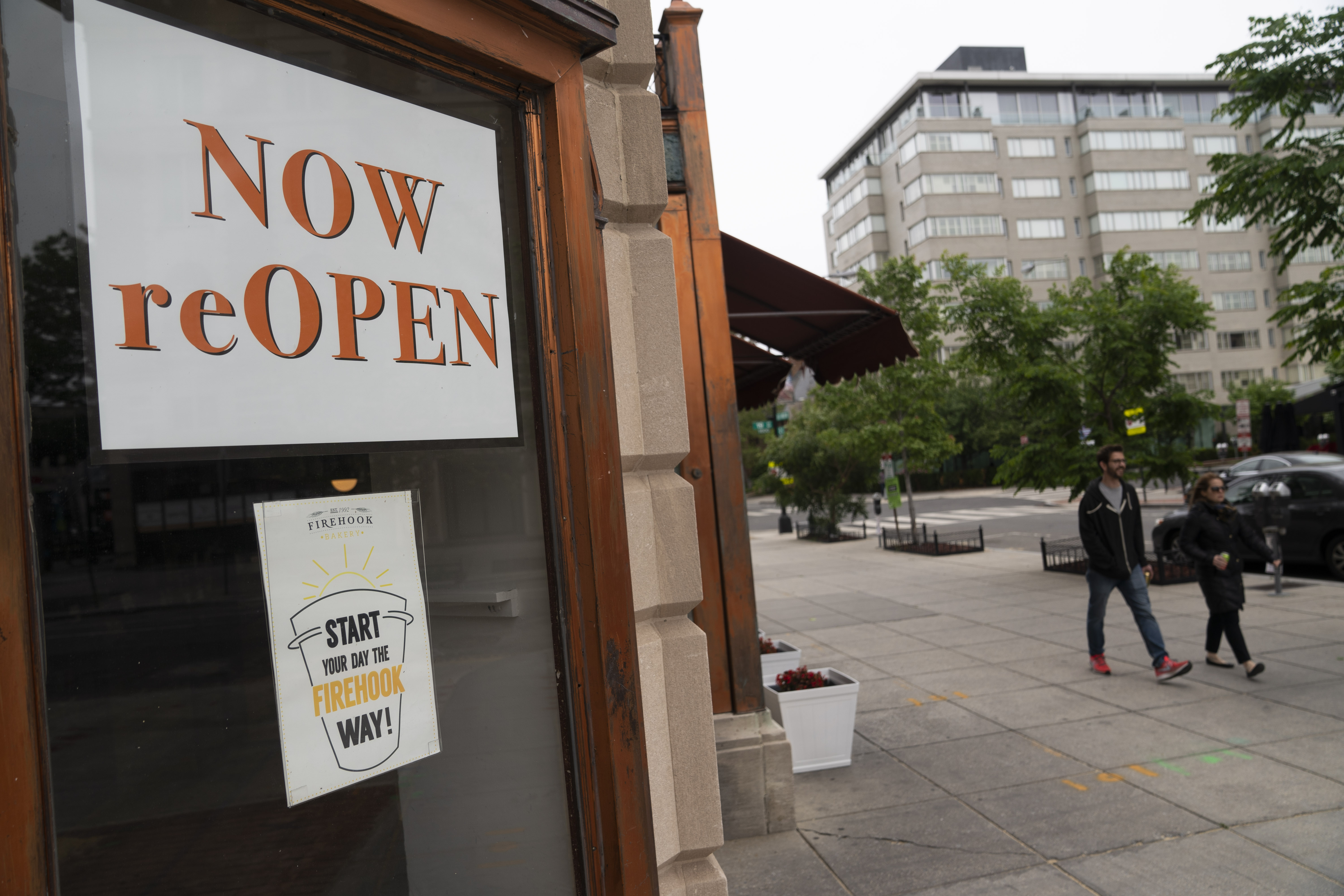
Photo taken on May 19, 2020 shows the window of a reopened bakery amid the COVID-19 outbreak in Washington D.C., the United States. (Xinhua/Liu Jie)
More suffering and deaths would occur in case of a second wave of infections, which would also reverse the economic recovery, and even plunge the U.S. economy into a depression, they said.
RACING TO REOPEN
Since late April, over 40 states have loosened restrictions put in place to curb the spread of COVID-19, and have allowed certain nonessential businesses to operate under social distancing guidelines.
"Many states that reopened economies are still seeing rising COVID-19 cases and deaths," Zhang Zuofeng, professor of epidemiology and associate dean for research with the school of public health at University of California, Los Angeles (UCLA), told Xinhua.
As of Tuesday, the United States reported more than 1.5 million confirmed cases and over 91,000 deaths, according to Johns Hopkins University. Although existing infection cases are falling in certain areas such as New York, a nationwide significant decline has yet to come.
Anthony Fauci, director of the National Institute of Allergy and Infectious Diseases, said recently at a virtual Senate hearing that the nation has not put the coronavirus outbreak under total control yet, warning of potential consequences for states that reopen too soon.
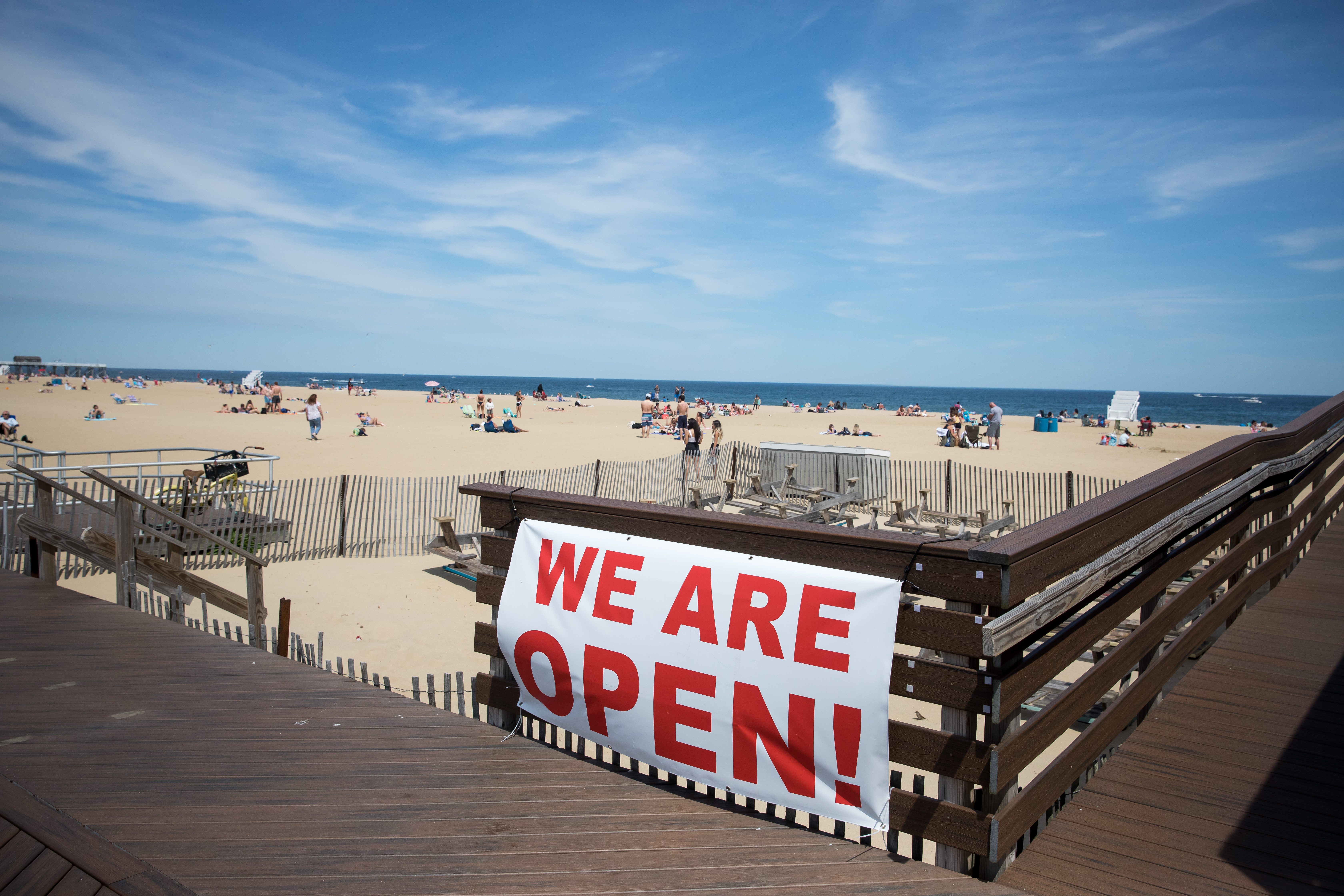
A beachside restaurant is open with takeout service amid the COVID-19 pandemic in Belmar, New Jersey, the United States, May 16, 2020. (Photo by Michael Nagle/Xinhua)
"My concern is that if some areas, city, states or what have you, jump over those various checkpoints and prematurely open up without having the capability of being able to respond effectively and efficiently ... we will start to see little spikes that might turn into outbreaks," said the country's top infectious disease expert.
The "checkpoints" Fauci mentioned refer to White House guidelines for a phased reopening, which include a "downward trajectory" of documented COVID-19 cases and positive tests percentage over 14 days, expanded testing and robust contact tracing.
Most states' reopening, however, has not met the White House guidelines, according to a recent report from The New York Times. "Officials are under pressure to restart the economy, but many states are moving too quickly, researchers say," the report said.
The pressure is certainly mounting. U.S. Federal Reserve Chairman Jerome Powell said Sunday on CBS News "60 minutes" that the U.S. economy could shrink dramatically in the second quarter, at an annualized rate of around 30 percent , and unemployment rate could peak around 20 percent or 25 percent.
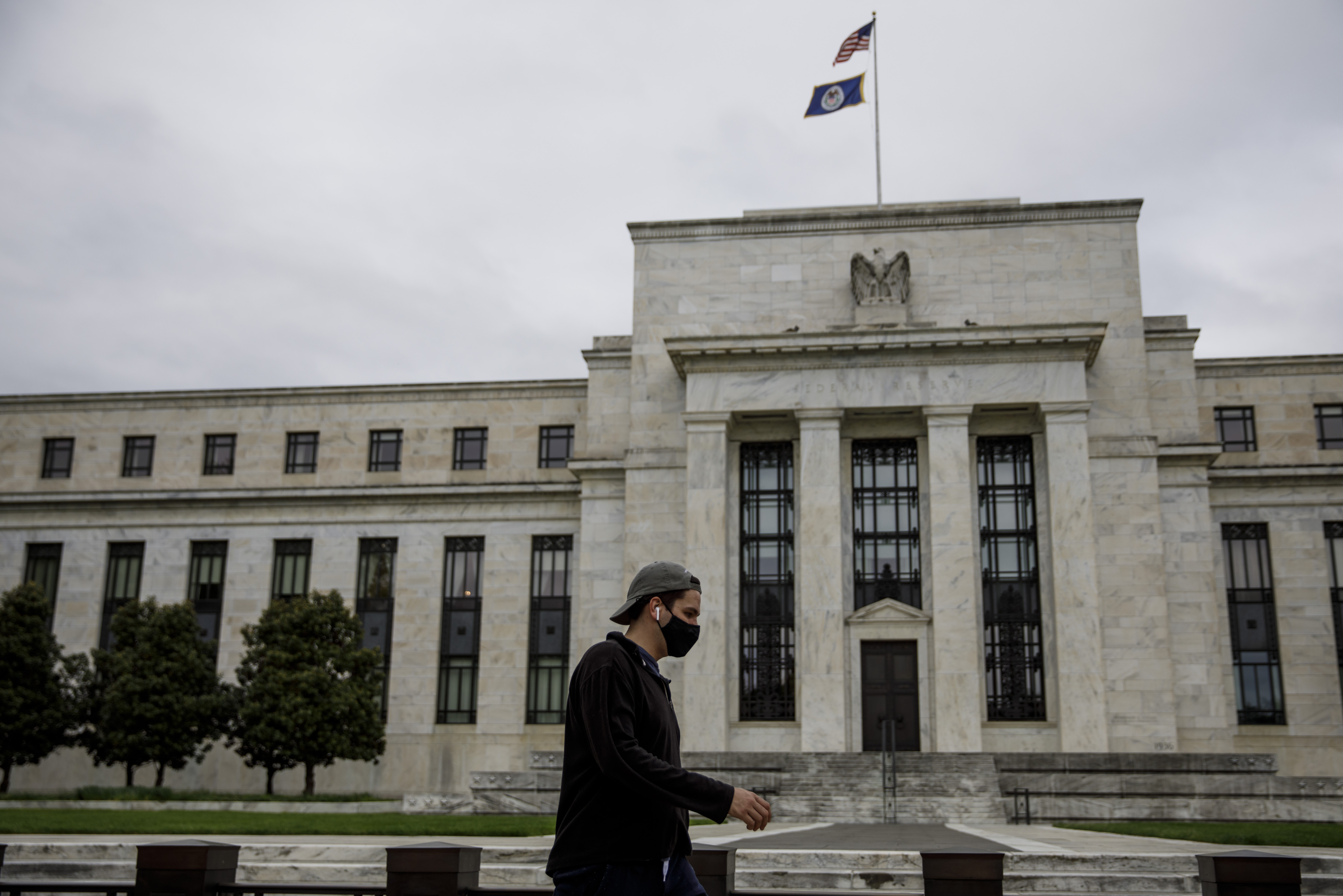
A pedestrian wearing a mask walks by the U.S. Federal Reserve building in Washington D.C., the United States on May 18, 2020. (Photo by Ting Shen/Xinhua)
As President Donald Trump attempts to revive the virus-hit economy to boost support ahead of the presidential election, governors of Michigan, Ohio, and Wisconsin, among others, have recently grappled with protestors who demand "stay-at-home" orders be lifted, and economic activities be resumed.
Democratic Senator Sherrod Brown on Tuesday accused the Trump administration of putting workers at risk to "juice the stock market," complaining about a lack of plan for how to protect workers as reopening began.
"Our biggest challenges are having the patience and the wisdom to wait long enough to return to work and school, and having enough testing in place to react quickly if there is a flare in transmission," Robert Schooley, a professor of medicine with the Division of Infectious Diseases and Global Public Health at the University of California, San Diego, told Xinhua.
RISK OF SECOND WAVE
Jamie Fiocco, owner of Flyleaf Books, a bookstore in Chapel Hill, North Carolina, recently told Xinhua that even though the state has started to reopen the economy, her store and many others are taking it slow.
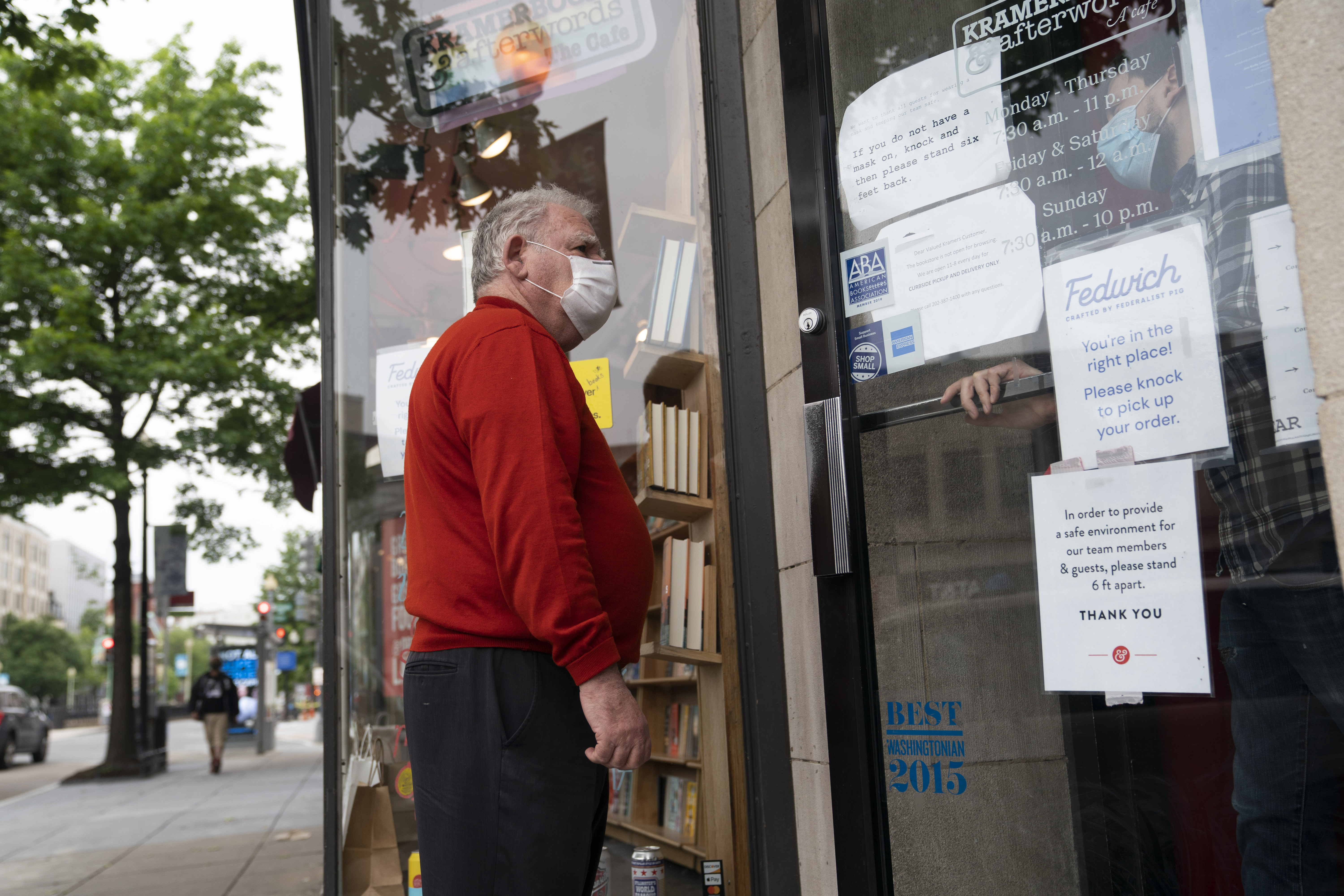
A man wearing a face mask talks with a bookstore staff member amid the COVID-19 outbreak in Washington D.C., the United States, May 19, 2020. (Xinhua/Liu Jie)
"We do not want to allow the virus to affect our staff or our customers and community," Fiocco said. Her store has been closed to the public since March 16, and for now it will remain so, while offering local delivery, curbside pickup and mailing out purchases.
"There is a big concern about a second wave," said Fiocco, also president of the American Booksellers Association, which represents some 2,000 independent brick-and-mortar booksellers nationwide.
In fact, cases have been rising in some areas that have eased restrictions. As of Tuesday, at least 17 states have recorded "a clear upward trend" of average new daily cases over the past seven days, the CNN reported, citing an analysis based on data from Johns Hopkins University.
Zhang, the epidemiology professor from UCLA, told Xinhua that "reopening may lead to sharp increase in new cases and local outbreaks, which may cause significant rise of nationwide COVID-19 cases and deaths."
"There is a real risk that you will trigger an outbreak you may not be able to control, which, in fact, heterodoxically would set you back, not only leading to some suffering and death that could be avoided," Fauci said, "but could even set you back on the road to try to get economic recovery."
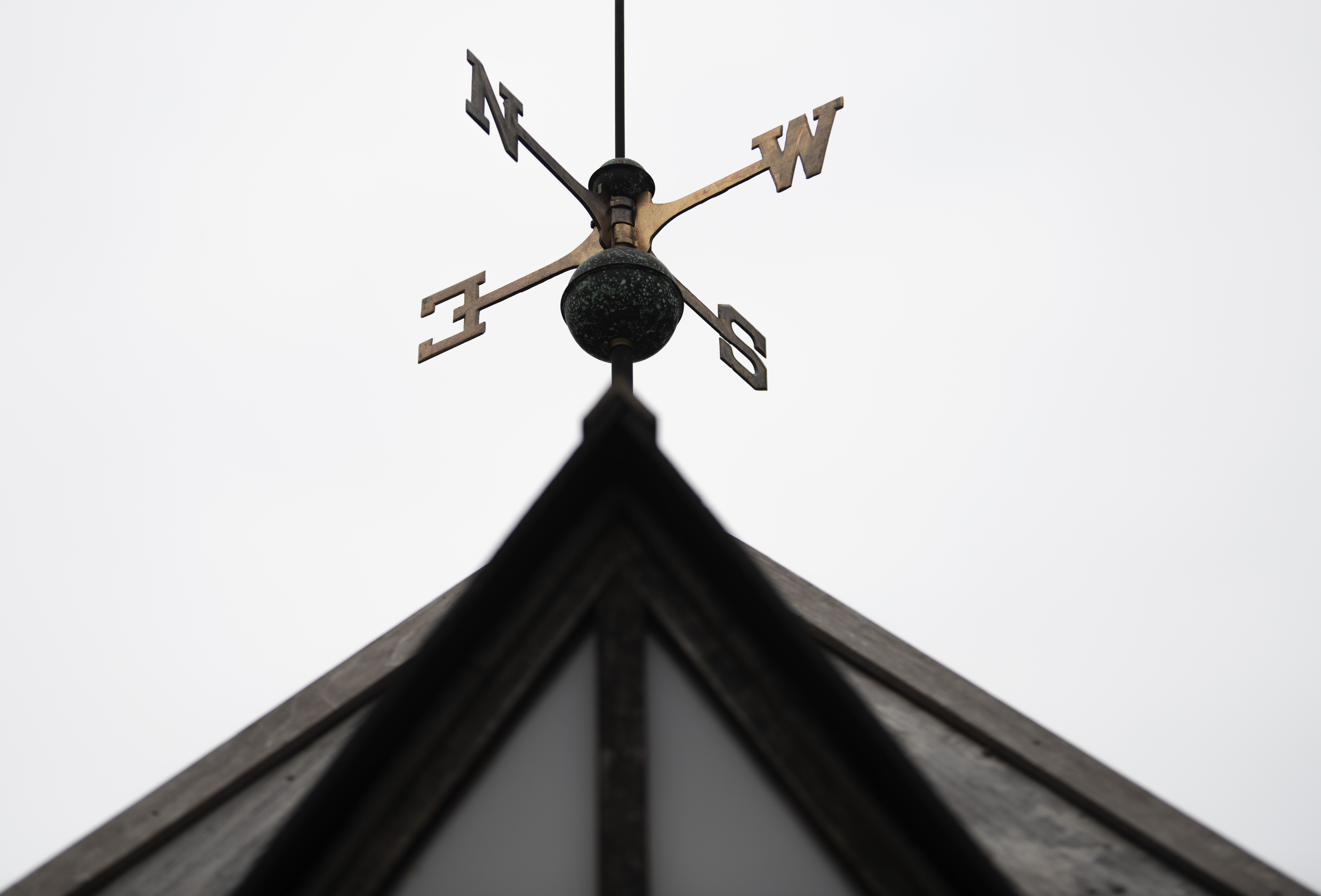
Photo taken on May 19, 2020 shows a wind vane in Washington D.C., the United States. (Xinhua/Liu Jie)
Philadelphia Federal Reserve Bank President Patrick Harker also warned that reopening the economy too quickly would not only bring a "health catastrophe" but also "reverse the economic recovery."
In a less hopeful scenario, Harker projected a similar growth path to the baseline for 2020, followed by "a painful economic contraction" of gross domestic product (GDP) in 2021 "as shutdowns are reintroduced."
"If we get a second wave, it will be a depression," Mark Zandi, chief economist of Moody's Analytics, told CNBC in a recent interview, defining the depression as 12 months or more of double digit unemployment.
"We may not shut down again, but certainly it will scare people and spook people and weigh on the economy," Zandi said.
BUMPY ROAD AHEAD
Despite the Trump administration's strong push to get the U.S. economy going again, the American public is still divided over state efforts to ease social distancing restrictions and restart the economy.
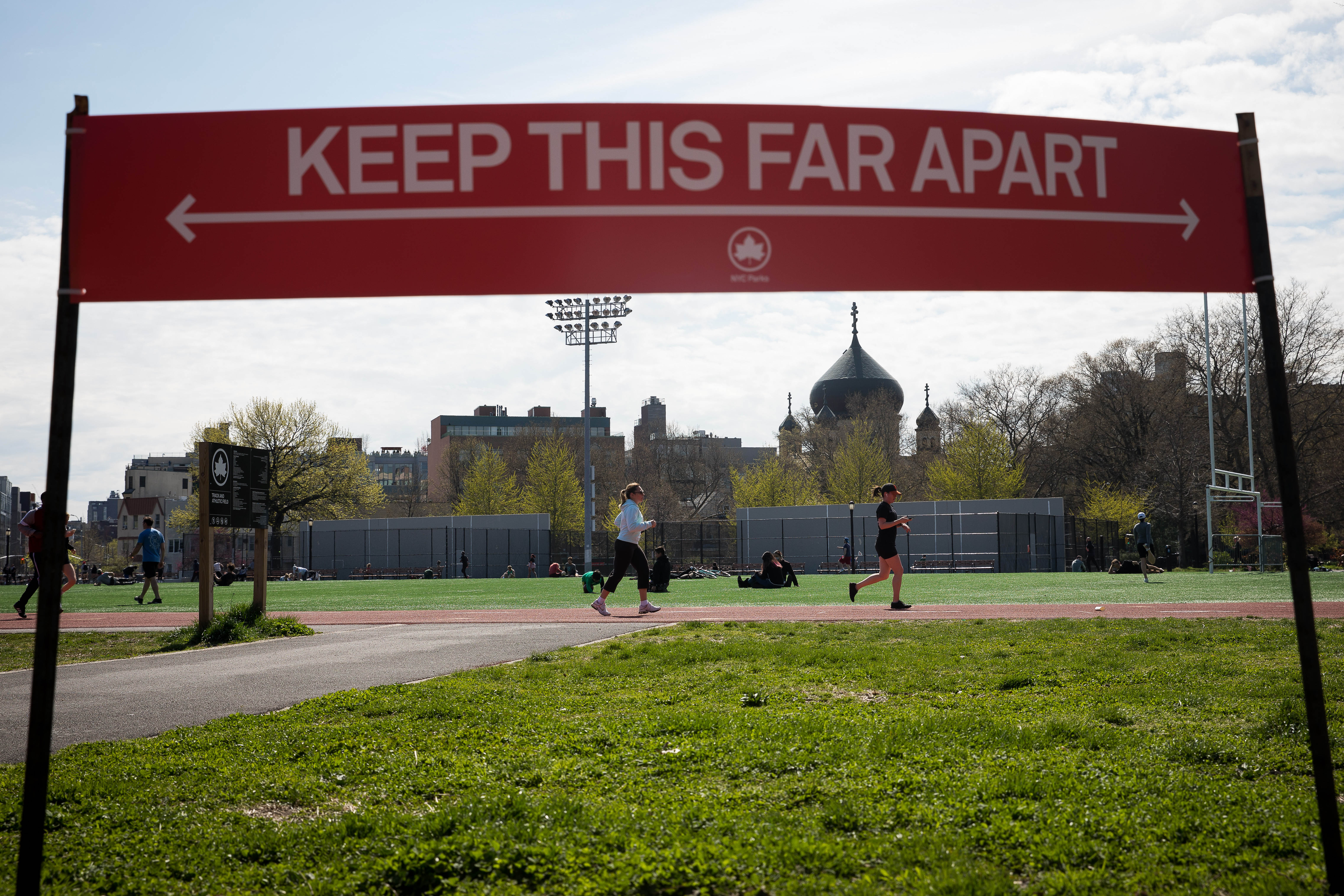
A social distancing sign is seen in McCarren Park during the COVID-19 pandemic in the Brooklyn borough of New York, the United States, April 14, 2020. (Photo by Michael Nagle/Xinhua)
According to a recent poll by the Washington Post and University of Maryland, 67 percent of Americans surveyed say they would be uncomfortable shopping at a retail clothing store, and 78 percent would be uncomfortable eating at a sit-down restaurant.
"Getting back to work or shopping in a pre-virus manner is difficult to predict at this time, with households likely to tiptoe back in rather than making an immediate return to the lives they experienced before," said National Retail Federation Chief Economist Jack Kleinhenz.
At a virtual hearing held by the Senate Banking Committee on Tuesday, Powell stressed the importance of getting the virus under control as the majority of states have allowed some businesses to reopen.
"The number one thing of course is people believing that it's safe to go back to work so they can go out, and that's about having a sensible, thoughtful reopening of the country," said the central bank chief.
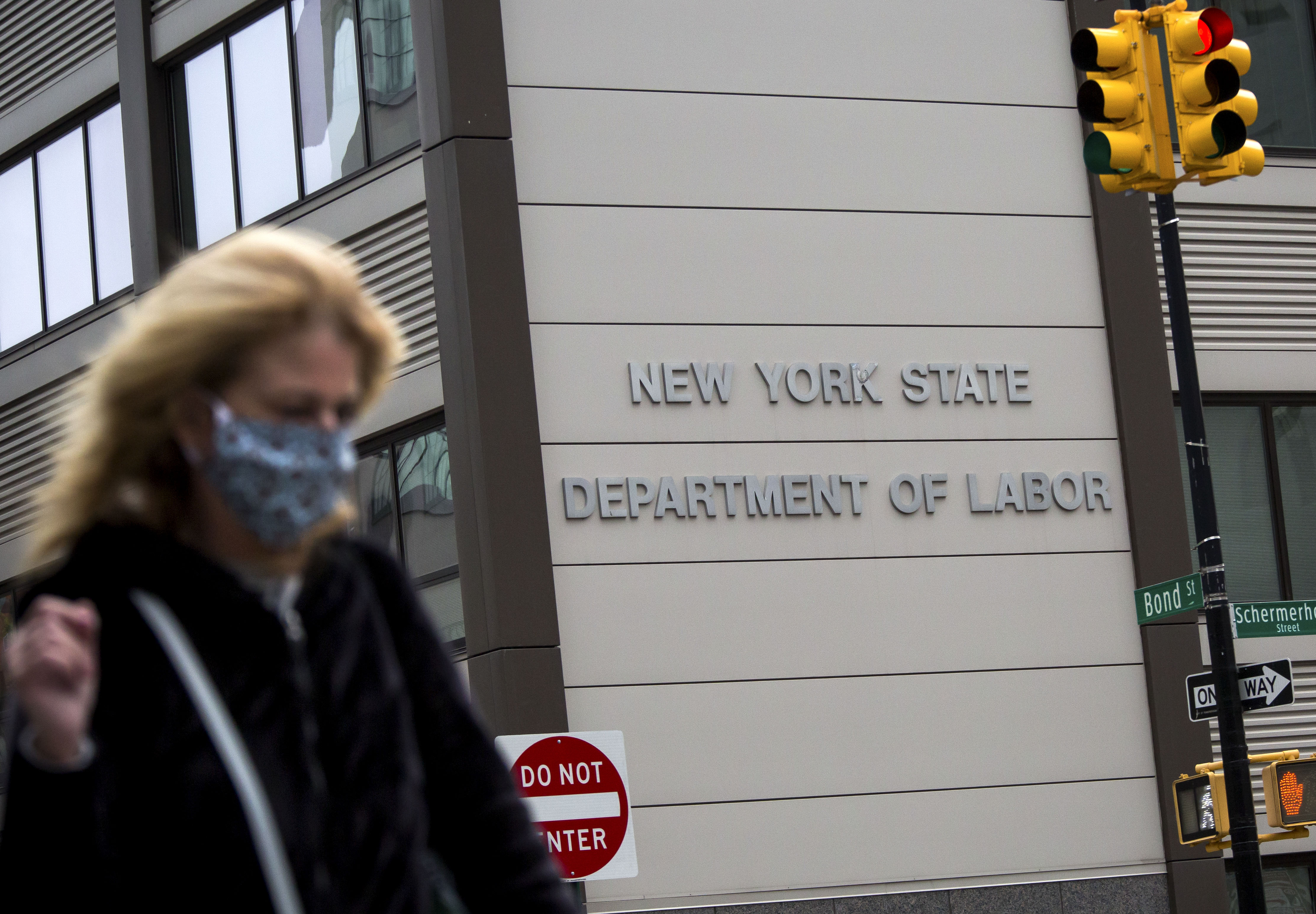
A pedestrian wearing a face mask walks past the New York State Department of Labor office in the Brooklyn borough of New York, the United States, May 8, 2020. (Photo by Michael Nagle/Xinhua)
Powell said "it will take some time for the public to regain confidence" and "adapt to the new world and start traveling, taking vacations, going to restaurants and things like that."
Zhu Simin, who launched Maryland-based Ecru Emissary, an online store that mainly sells Chinese designer brands, told Xinhua that her only hope for her six-person startup this year is to survive.
"I'm worried that people might just buy fewer clothes because they have less money during the outbreak," Zhu said, voicing her concern that reopening the economy doesn't necessarily lead to higher sales.
U.S. retail sales plunged by a record 16.4 percent in April amid mounting economic fallout from the COVID-19 pandemic, the Commerce Department reported Friday. Meanwhile, the optimism of small companies fell to a seven-year low in April, according to the National Federation of Independent Business.
Fiocco told Xinhua that she had to lay off half of the staff, from 15 to seven, amid the COVID-19 shutdown, and has recently offered the jobs back for three people, but they have declined due to fears about the virus.
"The fourth quarter of 2020 is very uncertain," she said. "We hope there will be normal operations by the end of 2021."
(Video editor Liu Yuting)



